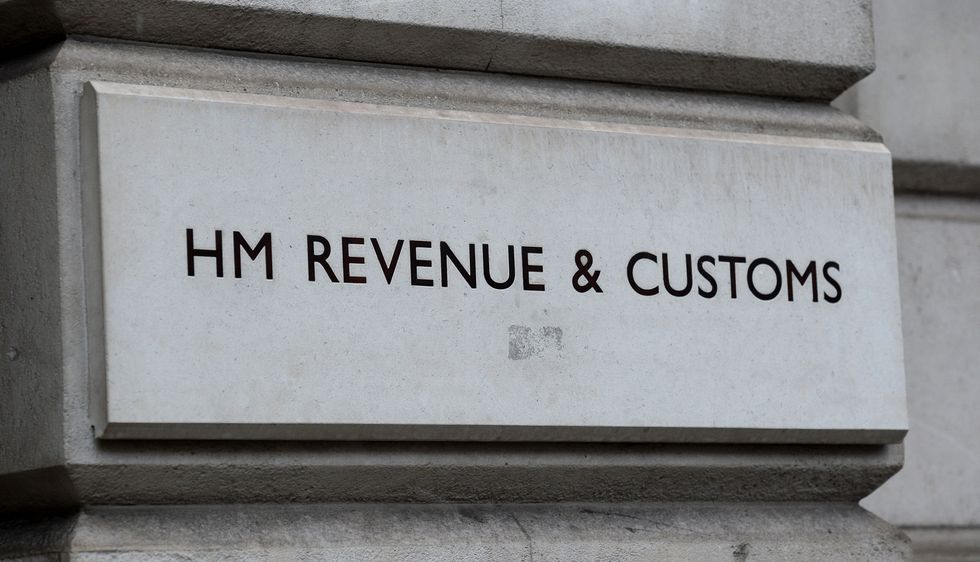Inheritance tax can be reduced by giving gifts - but rules do apply
GETTY
The standard inheritance tax rate is 40 per cent and it usually applies on parts of an estate above the threshold
Don't Miss
Most Read
Trending on GB News
Inheritance tax (IHT) receipts are on course for another record year, with the Treasury collecting almost £4billion in the first half of this tax year – an increase of £400million, HMRC figures show.
Furthermore, with rising house prices and the inheritance tax threshold frozen until at least April 2028, more families are set to be caught in the tax net.
Laura Suter, head of personal finance at AJ Bell, pointed out that high property prices mean one’s home could make up a significant chunk of the allowance – which is £325,000 but can be increased to £500,000 (and couples could pass on up to £1million inheritance tax-free).
She said: “Often the view is that only rich people pay inheritance tax, but with the average house price today of £291,000, even a more modest property could take up the entire nil rate band for an individual.
WATCH NOW: Jacob Rees-Mogg and Ross Clark discuss inheritance tax
“House price growth has put the fuel in the fire of the number of people paying inheritance tax. Since 2009, when the nil rate band was frozen, house prices have risen by 88 per cent, highlighting just how the tax-free allowance has failed to keep pace with asset prices.”
It means families may be more inclined to look at ways they can reduce inheritance tax liabilities, such as by giving gifts before they die.
There are various inheritance tax allowances which mean gifts can be given without being subject to inheritance tax, and if the gift is given seven years before death, it won’t be counted for these purposes.
Stevie Heafford, tax partner at accountancy firm HW Fisher, said: “Making gifts throughout your lifetime is an effective way to ensure that you are leaving as much behind to your loved ones as possible.“
For this, there is an annual exemption of £3,000 which can be rolled forward up to one tax year. For marriage or civil partnership celebrations, you can give up to £5,000 depending on your relationship to the giftee.
“In addition, small gifts of up to £250 and gifts out of excess income can be made to anyone free of inheritance tax.”
The latter exemption is a very simple way families can give an unlimited amount of wealth to their loved ones free of inheritance tax at any time.
All the giver needs to do is write a letter for this exemption, known as gifting out of surplus income.
Surplus income is any form of income that’s leftover once all of a person’s outgoings have been paid.
Ms Heafford said: “Remember your income isn’t only employment earnings and pension payments, it also includes any monies that you receive in the form of interest, ISAs, dividends and rental income.
“If you can afford to make regular financial gifts without it affecting your everyday lifestyle, the most common next step is to set up a regular payment plan through your bank.”
To ensure these gifts out of surplus income are exempt from inheritance tax, there are three rules a person needs to follow.
These are:
- The gifts must be made out of a person’s income
- They must be paid on a regular basis and become part of the person’s ‘normal expenditure’
- Making these gifts should not impact the person’s current standard of living
LATEST DEVELOPMENTS:

Writing a letter of intent means it can be helpful evidence for HMRC should they question inheritance tax liabilities
PA
Ms Heafford shared some advice for people who are looking to make gifts out of surplus income – and this includes keeping a file of all payments and income history.
She explained: “This will be helpful evidence that your giftee can present to HMRC should they question your inheritance tax liabilities when you pass away.
“It is also recommended that before your first payment, you write a letter of intent to the recipient of your financial gifts, outlining that they are being made out of surplus income, as this is another reference that can be given to HMRC on your death.”
It’s also important people make sure they are correctly calculating their income.
The tax partner said: “Missing any of the applicable earnings when calculating your total income can be a costly mistake for your giftee, who could be liable to pay up to 40 per cent of the amount gifted in inheritance tax.
“Be aware that the tax-free five per cent annual withdrawals from an investment bond do not count as income for this purpose.”








